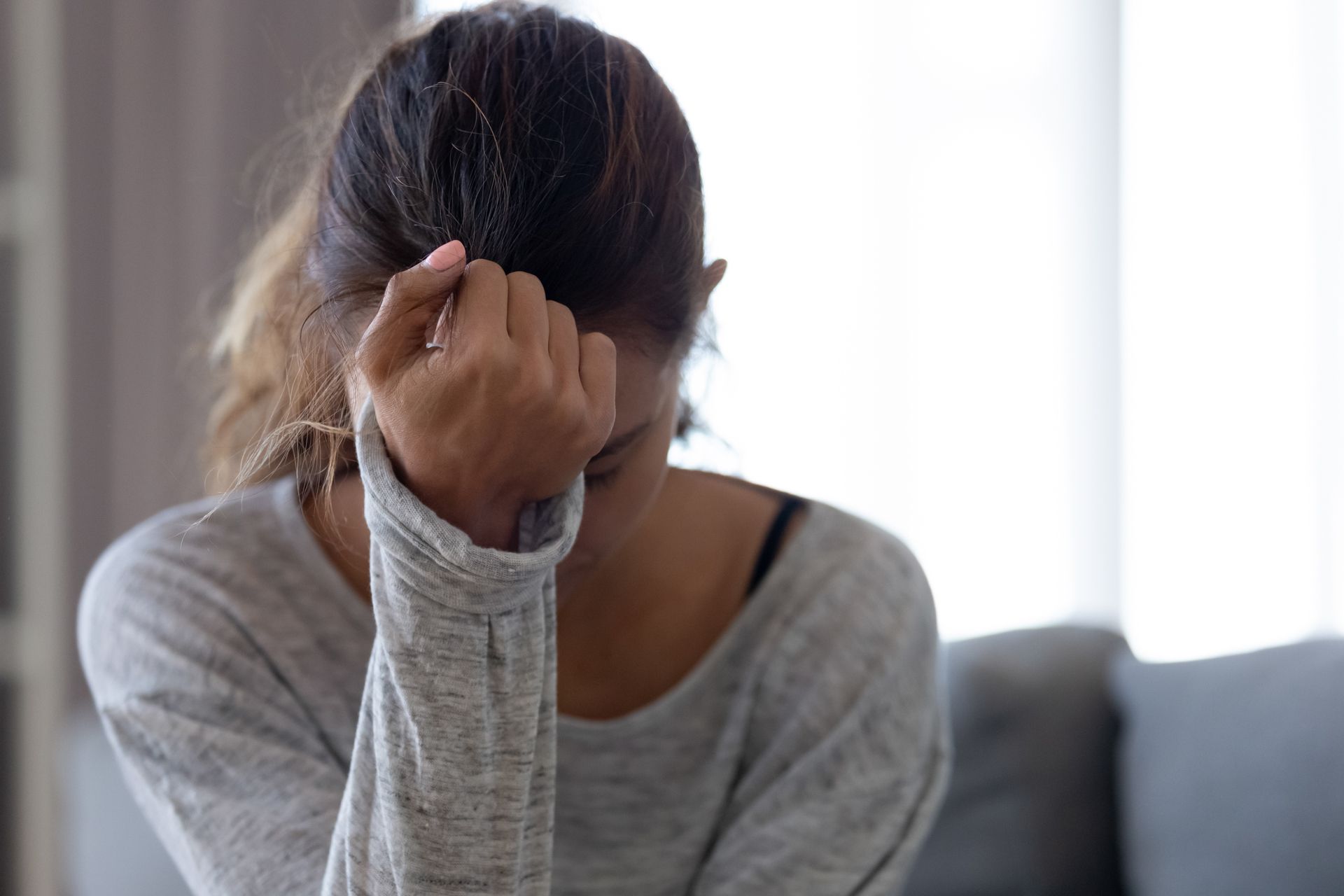Anxiety Treatments in Thornton, Brighton, and Commerce City, CO
Understanding Anxiety
Symptoms, Impact, and Treatment Options
Fear, dread, and unease are just some of the emotions associated with anxiety. Anxiety can also manifest physically, such as through sweat, becoming agitated, and experiencing a rapid heartbeat. In many cases, anxiety is a typical stress response. You might experience anxiety, for instance, when confronted with a challenging problem at work, before taking a test, or before making a crucial decision.
The fear can be incapacitating for those with anxiety disorders and last a long time. This fear can overwhelm everyday life, making it difficult to concentrate, sleep, and socialize. People with anxiety disorders may also feel dread or panic for no apparent reason and often constantly worry about everyday events. Anxiety disorders can be treated through therapy, medication, or a combination, and they are one of our treatment specialties here at John Maret Counseling.
General Anxiety and Anxiety Disorder: What's the Difference?
General anxiety refers to the normal nervousness, worry, and unease that most people experience from time to time. This type of anxiety is usually short-lived and in response to specific stressors or challenges, such as public speaking or taking a test.
On the other hand, anxiety disorder is a clinically diagnosable condition characterized by persistent, excessive, and unrealistic worry or fear that interferes with daily activities. People with an anxiety disorder may experience symptoms similar to general anxiety but persist for longer periods and often without an identifiable trigger.
The difference between general anxiety and an anxiety disorder is one of severity and duration. If your anxiety symptoms are persistent, severe, and interfere with your daily life, you may have an anxiety disorder and should consider seeking professional help.
Luckily, there are several effective treatments available for anxiety. The most common forms of treatment include psychotherapy, which involves talking to a mental health professional, such as a psychologist or counselor, about your thoughts, feelings, and behaviors associated with anxiety. This is the form of treatment offered at John Maret Counseling- a supportive environment that offers a safe space for anyone struggling with mental health challenges.
We use Cognitive Behavioral Therapy (CBT), which focuses on identifying and changing negative thought patterns and behaviors.
Other forms of treatment available for anxiety include antidepressants and anti-anxiety medications that can help reduce anxiety symptoms, thus freeing you to live unencumbered. These medications work by changing the levels of certain chemicals in the brain that affect your mood. Working with a doctor to find the right medication and dosage for your needs is important.
Making changes to your lifestyle, such as getting regular exercise, eating a healthy diet, and reducing caffeine and alcohol consumption, can help reduce anxiety symptoms. Some people find relief from anxiety through complementary and alternative treatments, such as mindfulness meditation, yoga, and acupuncture. A combination of psychotherapy, medication, and lifestyle changes can be especially effective in treating anxiety disorders.
It's important to work with a mental health professional to determine the best treatment plan for your specific needs and symptoms. Remember that what works for one person may not work for another, and it may take some time and trial and error to find the most effective treatment for you.
Anxiety Can Manifest In a Variety of Ways
Anxiety is often split between physical and psychological symptoms, including:
Physical symptoms
- Rapid heart rate
- Sweating
- Trembling or shaking
- Shortness of breath
- Muscle tension or pan
- Headaches
- Fatigue
- Insomnia
- Gastrointestinal problems
Psychological symptoms
- Excessive worry or fear
- Racing thoughts
- Irritability
- Restlessness
- Avoidance of situations that trigger anxiety
- Difficulty concentrating
- Feelings of impending doom
- Numbness or a sense of detachment
It's important to note that everyone's experience with anxiety is unique; these symptoms can range from mild to severe. If you're experiencing anxiety symptoms affecting your daily life, it's important to seek help from a mental health professional such as John Maret Counseling. We hope you'll contact us soon.
Benefits of Getting Anxiety Treatment
Therapy and counseling with John Maret Counseling can be valuable and effective treatment options for individuals struggling with anxiety, providing them with the tools they need to manage their symptoms and lead fulfilling lives. Therapy and counseling can help you understand the root cause of the anxiety. By working with a therapist or counselor, you can gain insight into the underlying causes of your anxiety, such as past experiences, negative thought patterns, or personality traits.
A therapist can also teach you various coping strategies, such as deep breathing, mindfulness, and relaxation techniques, to help you manage your anxiety symptoms. With therapy, you can learn to recognize and challenge negative thoughts and beliefs contributing to your anxiety. This can help you replace them with more positive and realistic ways of thinking.
Moreover, working with a counselor can help you improve your interpersonal skills and build stronger, more supportive relationships. Regular therapy sessions can help you reduce anxiety symptoms, such as worry, panic attacks, and avoidance behaviors, and increase well-being. By addressing your anxiety, you can also improve other aspects of your mental health, such as reducing symptoms of depression and increasing self-esteem and confidence. The long-term benefits of therapy include learning skills and strategies that'll help you manage anxiety even after treatment has ended.
Are you ready to reclaim your life?
With proper treatment, many people with anxiety disorders can reduce or eliminate their symptoms and lead fulfilling lives. The key to overcoming anxiety is to get a proper diagnosis and an individualized treatment plan that addresses the specific symptoms and triggers.
This plan may involve a combination of psychotherapy, medication, lifestyle changes, and complementary and alternative anxiety and depression treatments. It's also important to practice self-care and develop coping strategies for managing stress and anxiety. Recovery from anxiety can be a process that takes time and patience. Still, with persistence and a positive attitude, many people can overcome their symptoms and lead happier and healthier lives. It's important to remember that seeking help is a sign of strength, and taking control of your mental health is a critical step toward overcoming anxiety. Say goodbye to fear and suffering, and start thriving today.


